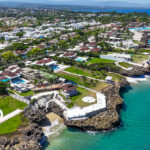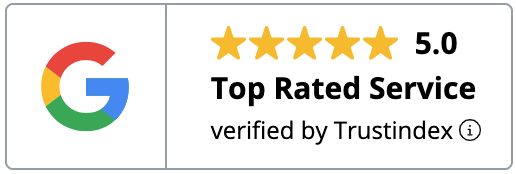Guide to Buying Property in the Dominican Republic
Buying property in the Dominican Republic offers an exciting opportunity to own a piece of paradise, but there are several factors to consider before diving in. Here’s a comprehensive guide to help you make an informed decision.
1. Legal Requirements for Foreign Buyers
- Foreign Ownership: Unlike some countries, the Dominican Republic has no restrictions on foreign ownership. Foreign nationals can buy properties, including beachfront ones. However, properties near borders or military zones may be subject to certain restrictions.
- Due Diligence: Before finalizing a purchase, verify the property’s title to ensure it’s free of debts, encumbrances, and legal disputes. Title searches and other due diligence steps can be handled by a local attorney.
- Notary Public: Real estate deals are formalized by a notary public, and the deed must be registered with the country’s property registry to validate the purchase.
2. Location
- Tourist Areas vs. Local Neighborhoods: Popular tourist destinations like Punta Cana, Cabarete, Sosúa, and Puerto Plata offer convenient amenities but may have higher property prices. For more affordable options, consider areas with developing infrastructure or less tourist traffic.
- Accessibility: Assess the property’s proximity to international airports, major roads, and public transportation options. Ease of access can impact both value and convenience.
- Natural Hazards: Since the Dominican Republic can be affected by hurricanes and flooding, check flood zones and ensure proper structural protection measures are in place.
3. Costs Involved
- Property Price: Real estate prices vary widely depending on location, size, and type (e.g., villa, apartment, beachfront). Conduct thorough market research to ensure a fair price.
- Closing Costs: Budget for closing costs such as notary fees, registration fees, taxes, and legal expenses, which typically range from 3% to 5% of the purchase price.
- Property Taxes: Property taxes, known as Impuesto sobre la Propiedad Inmobiliaria, are relatively low but depend on the property’s value. Generally, properties under a certain threshold are exempt from annual taxes.
4. Financing
- Cash Purchases: Most foreign buyers pay in cash, as mortgage options can be limited for non-residents.
- Mortgages: Certain banks offer loans to foreigners, but they often come with higher down payment requirements and stricter criteria. Consulting with a local financial advisor can clarify options.
5. Real Estate Market Trends
- Appreciation Potential: Over the past decade, property values in the Dominican Republic have increased, primarily due to tourism and foreign investment. Nonetheless, market trends may differ across regions.
- Rental Income: Many buyers purchase property with the intent to rent it out, especially in tourist-heavy regions. Vacation rentals can generate attractive income, but be aware of demand variations and potential regulatory changes.
6. Regulations and Taxes
- Property Taxes: The Dominican Republic’s property tax rates are relatively low. Properties valued below a certain amount may be exempt, but more expensive properties incur annual taxes.
- Rental Income Tax: Income earned from renting out your property is subject to taxes, with varying rates based on the income type. Consult a local accountant to understand the requirements.
- Capital Gains Tax: If you profit from selling the property, capital gains taxes may apply. This is more relevant for long-term property holders.
7. Safety and Security
- Crime Rates: While the country is relatively safe, crime levels can vary between neighborhoods. Speak with locals and other expats for insights on safety.
- Property Security: Consider security measures like gated access, surveillance, and guards, especially for properties in remote or rural areas.
8. Maintenance and Utilities
- Maintenance Costs: High humidity and heavy rainfall can lead to frequent maintenance needs. Plan for the costs of upkeep, including repairs, garden care, and pest control.
- Utilities: Utility reliability can vary. Make sure the property has stable access to water, electricity, and internet services.
9. Hiring Professionals
- Real Estate Agent: Work with a reputable agent who understands the local market to streamline your purchase process.
- Lawyer: A local lawyer can help with contracts, legal compliance, and due diligence.
- Surveyor/Inspector: For large or complex properties, hire a surveyor or inspector to identify any potential issues before finalizing the purchase.
10. Exit Strategy
- Reselling: Understand the costs and processes involved in reselling, such as taxes and transfer fees. Consider how easily the property might sell based on market conditions.
- Inheritance Laws: The Dominican Republic has specific inheritance laws. If you intend to pass the property to heirs, ensure they are aware of the requirements and consider drafting a local will.
11. Cultural Considerations
- Language Barrier: Spanish is the official language, so it helps to speak some Spanish or hire a translator, especially for legal matters.
- Cultural Norms: Understanding business customs and social norms can enhance your experience and foster positive relationships.
12. Residency Options
- Temporary Residency: Consider residency options if you plan to spend extended time in the country. The Dominican Republic offers several paths, such as pensionado visas for retirees and investment-based residency.
Conclusion
Buying property in the Dominican Republic can be a great investment if you assess key factors such as location, legal requirements, costs, and market conditions. Working with trusted local professionals will help you navigate the process smoothly, ensuring your purchase is both secure and beneficial.




